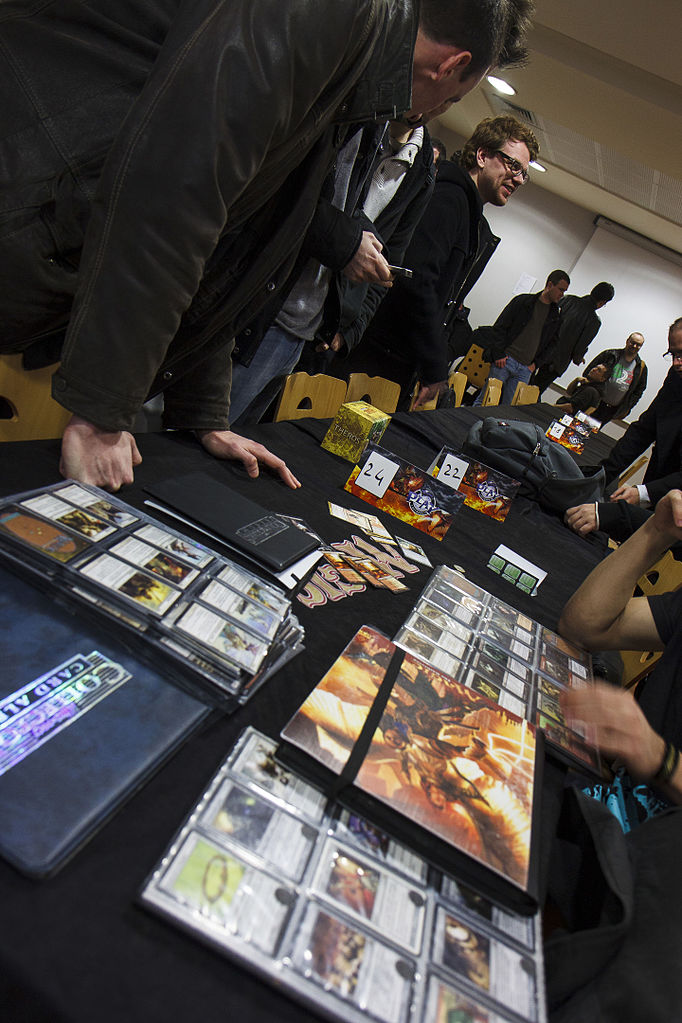Rhetoric and Games

Even beyond the sphere of game studies, there has been considerable academic study of games, and rhetoricians have provided a number of significant insights into the relationships between play, procedure, persuasion, meaning-making, and composition. We do not wish to focus primarily on the review of all such literature, especially given the extent to which some figures (e.g., James Paul Gee, Jesper Juul, and Espen Aarseth, among others) have been discussed—instead, for an incredible and concise review, we point to Rebekah Shultz Colby (2017), who established a foundation of games-related research in order to support game-oriented writing pedagogy. However, there are a few especially important ideas that inform our approach to studying Magic and similar activity networks.
Among the most important concerns for game communities and their rhetorical agency are the varieties of knowledge, skill, orientation, and motive that individuals and groups within those communities possess. These concerns are not always directed expressly toward the game, and some broader values might lead some individuals to (or away from) the game. Phill Alexander (2017) articulated a distinction between several kinds of knowledge, with "tacit" and "material" forms of latent knowledge and "actor," "elastic/kinetic," and "catalyst" forms of active knowledge, each of which may be developed in different ways and which suggests a particular kind of understanding that influences the ways that an individual engages a game, its system(s) and procedures, its other players, and so on. The interrelated nature of these forms of knowledge, as well as the differences between individuals employing or valuing some of them over others, plays a significant role in how players may find themselves comprehending and engaging the game in certain ways or for certain ends. In large-scale games like MMORPGs, these different interpretations may lead to diverse and unique approaches to building ethos within one or more of the game’s communities (Sierra & Eyman, 2013).
Similarly, concerns over the gravitas of games and gaming as objects of study and as a form for expression and communication have played a role in how scholars establish (or respond to) arguments about games. For example, Jennifer deWinter and Stephanie Vie (2015) observed the distinction between "game" and "play" in an effort to contextualize the debate over Cs the Day, an augmented reality game run by volunteers at each annual Conference on College Composition and Communication, and, more importantly, to reveal that we are always playing something, even in critiques of such a game. Further, the game’s infrastructure is founded in the larger set of conventions for academic conferences; the game is not something other than expected scholarly and professional behavior so much as a particular means of expressing it. We see this argument as integral to understanding games, with games and play as extensions and reflections of the self and community just as the self can be understood, echoing Johan Huizinga (1949), to be defined by play.
Finally, we were inspired in part by the work of Brian McNely, Paul Gestwicki, Bridget Gelms, and Ann Burke (2013), who documented extensively (through text, audio, image, and video) their collaborative game development via a number of practices, artifacts, and genres. The ethnographic study and reflection the authors published offers an excellent in-depth account of how game participants (as well as designers) might work to more fully and critically understand the numerous circumstances surrounding their engagement in, or activation of, a particular activity network.